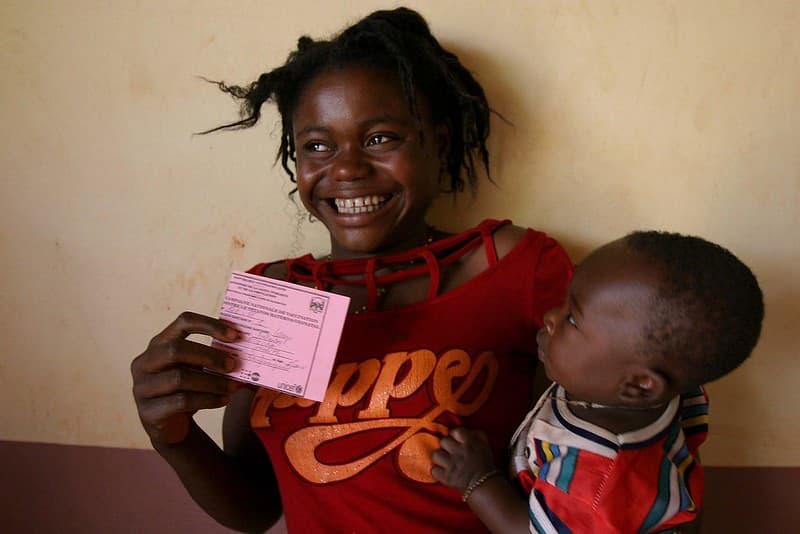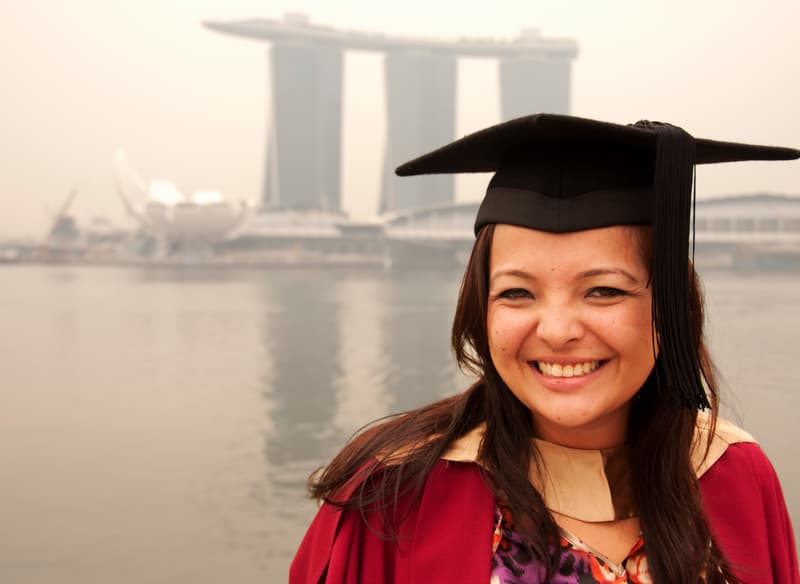Project Administrator
Vienna
- Organization: UNIDO - United Nations Industrial Development Organization
- Location: Vienna
- Grade: Level not specified - Level not specified
-
Occupational Groups:
- Project and Programme Management
- Closing Date: 2023-12-12
Requisition ID: 3165
Grade: ISA-Junior Specialist
Country: Austria
Duty Station: Vienna
Category: International Consultant
Type of Job Posting: Internal and External
Employment Type: NonStaff-Regular
Application Deadline: 12-Dec-2023, 11:59 PM (CET)
Vacancy Announcement
TEMPORARY APPOINTMENT OF PROJECT PERSONNEL
Female candidates are encouraged to apply.
ORGANIZATIONAL CONTEXT
The United Nations Industrial Development Organization (UNIDO) is the specialized agency of the United Nations that promotes industrial development for poverty reduction, inclusive globalization and environmental sustainability. The mission of UNIDO, as described in the Lima Declaration adopted at the fifteenth session of the UNIDO General Conference in 2013 as well as the Abu Dhabi Declaration adopted at the eighteenth session of UNIDO General Conference in 2019, is to promote and accelerate inclusive and sustainable industrial development (ISID) in Member States. The relevance of ISID as an integrated approach to all three pillars of sustainable development is recognized by the 2030 Agenda for Sustainable Development and the related Sustainable Development Goals (SDGs), which will frame United Nations and country efforts towards sustainable development. UNIDO’s mandate is fully recognized in SDG-9, which calls to “Build resilient infrastructure, promote inclusive and sustainable industrialization and foster innovation”. The relevance of ISID, however, applies in greater or lesser extent to all SDGs. Accordingly, the Organization’s programmatic focus is structured in four strategic priorities: Creating shared prosperity; Advancing economic competitiveness; Safeguarding the environment; and Strengthening knowledge and institutions.
Each of these programmatic fields of activity contains a number of individual programmes, which are implemented in a holistic manner to achieve effective outcomes and impacts through UNIDO’s four enabling functions: (i) technical cooperation; (ii) analytical and research functions and policy advisory services; (iii) normative functions and standards and quality-related activities; and (iv) convening and partnerships for knowledge transfer, networking and industrial cooperation. Such core functions are carried out in Departments/Offices in its Headquarters, Regional Offices and Hubs and Country Offices.
The Directorate of SDG INNOVATION AND ECONOMIC TRANSFORMATION (IET)
Under the overall direction of the Director General, and in close collaboration with all organizational entities within UNIDO, in particular the Office of Change Management (ODG/CHM), the Office of Legal Affairs and Compliance (ODG/LEG), the Strategic Planning and UN Engagement Division (ODG/SPU), and the Office of Evaluation and Internal Oversight (EIO), the Directorate of SDG Innovation and Economic Transformation (IET), headed by a Managing Director, is responsible for the development of innovative UNIDO services in the areas of agro-industry and agribusiness, sustainability standards and fair production, and climate-relevant or climate-improving technologies. It is also, in collaboration with ODG, responsible for developing innovative technical cooperation concepts, identifying new sources and means of finance and entering into new partnerships with a broad range of relevant stakeholders.
The Directorate houses the Divisions of Coordination and Integration Support (IET/CIS), Quality, Impact and Accountability (IET/QUA), Agribusiness and Infrastructure Development (IET/AGR), Innovative Finance and International Financial Institutions (IET/IFI), Fair Production, Sustainability Standards and Trade (IET/PST), Public-Private Partnerships (PPP), and Climate and Technology Partnerships (CTP). The Directorate also ensures close coordination and collaboration among the Divisions and relevant entities in the Directorate of Global Partnerships and External Relations (GLO) and the Directorate of Technical Cooperation and Sustainable Industrial Development (TCS).
The Division of Fair Production, Sustainability Standards and Trade (IET/PST)
Under the overall guidance of the Director General, the direct supervision of the Managing Director, Directorate of SDG Innovation and Economic Transformation (IET), and in close coordination with other organizational entities within UNIDO, the Division of Fair Production, Sustainability Standards and Trade (IET/PST) develops and implements an innovative service package in response to UNIDO's mandate for fair and responsible local industrial production and trade with a particular focus on building the required skills and capacities and foster a conducive business operating environment to ensure that such production and trade are as inclusive as possible, promoting – among others – the development of human capital through vocational training and industrial skills development. In collaboration with IET/IFI, IET/PPP, TCS/SME, TCS/CPA, and GLO/MSR, the Division will conceptualize and negotiate such services and raise funds from Member States, development partners, IFIs, and the private sector to coordinate their effective implementation and devise ways in which their implementation can be brought to scale. This will include cross-cutting and sector-specific initiatives for sustainable supply/value chain and skills development in industrial sectors where UNIDO has, over the years, accumulated expertise, such as agro-industries, fisheries, textiles, leather, light manufacturing, health, mining, automotive and pharma and others. It will do so through close engagement with Member States, private sector associations, industrial enterprises, international quality, standards and trade-related governing bodies, other UN Agencies (e.g. ILO), development partners, NGOs and consumer associations, as appropriate, ensuring solid and operational partnerships.
The Skills Development and Fair Production Unit (IET/PST/SFP)
The Skills Development and Fair Production Unit supports Member States in integrating into the emerging global systems of fair and sustainable trade. To this end, it leverages partnerships with the private sector to enhance employees' skill sets to become the sources driving the sustainable transition. The Unit also promotes learning, concepts and norms to augment the attractiveness of industrial employment for youth and women under transparent, fair and social working conditions. The Unit also deploys foresight and planning instruments to guide Member States in developing the industrial skills in future cohorts of industrial employees and respond to re- and up-skilling requirements of actors in a sustainable value chain.
The UNIDO RH in Egypt is responsible for representing the Organization in the host country and promoting UNIDO as an effective partner for development. It is further responsible for supporting, inter alia, formulation and monitoring technical cooperation projects and programmes, in collaboration with UNIDO relevant technical departments and other appropriate organizational units.
PROJECT CONTEXT
The “Women’s Economic Empowerment for Inclusive and Sustainable Growth” programme, hereby referred to as the Rabeha programme, is jointly implemented by UN Women (Leading agency) and UNIDO. The programme is funded by the Government of Canada through Global Affairs Canada (GAC).
The Programme aims to increase women’s economic participation in Egypt’s private sector as entrepreneurs and employees and agents of change in their workplaces and communities. In addition, the programme aims to reduce gender-specific barriers facing women, to foster more inclusive economic growth. The Programme’s main implementing partners from the government of Egypt are: Ministry of Trade and Industry (MoTI); Micro, small and medium enterprise development agency (MSMEDA); and the National Council for Women (NCW).
The Rabeha programme approach aligns with several strategies and goals of the Government of Egypt: a) the Sustainable Development Strategy (SDS): Egypt Vision 2030; b) the National Strategy for Women’s Empowerment (NSWE), notably the Economic Empowerment Pillar; c) the strategic goals of MoTI to increase the micro, small and medium enterprise sector’s contribution to the country’s GDP and the provision of decent and productive job opportunities.
The programme also directly contributes to several Sustainable Development Goals (SDGs), namely: Goal 1 “End poverty in all it forms everywhere”, Goal 5 “Achieve gender equality and empower all women and girls”; Goal 8 “Promote sustainable, inclusive and sustainable economic growth, full and productive employment and decent work for all”; and Goal 10 “Reduce inequality within and among countries”.
UNIDO’s component of the Programme is to boost entrepreneurship, self-employment and paid employment opportunities in the following target value chains: i) palm dates, ii) medicinal and aromatic plants (MAP), and iii) handicrafts. The main target groups are aspiring women entrepreneurs; early-stage women business owners; and women employment seekers from the following governorates: Beni Suef, Fayoum, Wahaat (Giza) and Minya.
Expected results within the target value chains include:
- New women-led businesses are established, including in the green and circular economy
- Productivity and profitability improvements in women-led business, including through business digitalization
- Retain or increase of new paid jobs generated by women-led businesses
- Increase of female employees in targeted value chain as well as in supporting sectors (e.g., R&D, quality assurance, marketing, data analysis, etc.)
- Increase in women business owners enhancing their operations and practices to be more environmentally sustainable and competitive
FUNCTIONAL RESPONSIBILITIES
Under the supervision of the Project Manager, and working with the project team, administers elements of technical cooperation programme or specific project/s of limited complexity and execution of technical cooperation programmes and activities. The incumbent shall carry out following main duties.
- Select, organize and summarize background information to describe the overall context and background relevant to a project or a sector of technical cooperation activities in a country, assess the local context for the planning and administration of individual technical cooperation projects;
- Analyze and interpret project background history and documentation; identify, reconstruct and document significant project events, decisions and deviations;
- Draft sections of project documents such as project background and justification;
- Inform experts, consultants and other project participants about logistical arrangements and internal procedures for monitoring and reporting in terms of the immediate objectives of specific projects;
- Monitor specific aspects of project execution and identify problems and proposing that actions be taken to expedite delivery of inputs;
- Draft comments on designated aspects of project progress as an input to programme monitoring;
- Draft visibility materials to promote the results of individual technical cooperation projects.
MINIMUM ORGANIZATIONAL REQUIREMENTS
Education
Advanced university degree (master's or equivalent) in education, economics, business administration, international relations or other relevant discipline is required.
Technical and Functional Experience
At least three (3) years of work experience in gender and entrepreneurship development programmes is required. Ability to research and analyse information is required. At least three years of experience in monitoring and evaluation of development programmes is required. Exposure to the needs, conditions and problems in developing countries is desirable. Experience in evaluating the needs, conditions and problems in developing countries, is desirable.
Languages
Fluency in written and spoken English is required.
REQUIRED VALUES AND COMPETENCIES
Core values
WE LIVE AND ACT WITH INTEGRITY: work honestly, openly and impartially.
WE SHOW PROFESSIONALISM: work hard and competently in a committed and responsible manner.
WE RESPECT DIVERSITY: work together effectively, respectfully and inclusively, regardless of our differences in culture and perspective.
Key competencies
WE FOCUS ON PEOPLE: cooperate to fully reach our potential –and this is true for our colleagues as well as our clients. Emotional intelligence and receptiveness are vital parts of our UNIDO identity.
WE FOCUS ON RESULTS AND RESPONSIBILITIES: focus on planning, organizing and managing our work effectively and efficiently. We are responsible and accountable for achieving our results and meeting our performance standards. This accountability does not end with our colleagues and supervisors, but we also owe it to those we serve and who have trusted us to contribute to a better, safer and healthier world.
WE COMMUNICATE AND EARN TRUST: communicate effectively with one another and build an environment of trust where we can all excel in our work.
WE THINK OUTSIDE THE BOX AND INNOVATE: To stay relevant, we continuously improve, support innovation, share our knowledge and skills, and learn from one another.
This appointment is limited to the specified project(s) only and does not carry any expectation of renewal.
Employees of UNIDO are expected at all times to uphold the highest standards of integrity, professionalism and respect for diversity, both at work and outside. Only persons who fully and unconditionally commit to these values should consider applying for jobs at UNIDO.
All applications must be submitted online through the Online Recruitment System. Correspondence will be undertaken only with candidates who are being considered at an advanced phase of the selection process. Selected candidate(s) may be required to disclose to the Director General the nature and scope of financial and other personal interests and assets in respect of themselves, their spouses and dependents, under the procedures established by the Director General.
Visit the UNIDO website for details on how to apply: www.unido.org
NOTE: The Director General retains the discretion to make an appointment to this post at a lower level.
Notice to applicants:
UNIDO does not charge any application, processing, training, interviewing, testing or other fee in connection with the application or recruitment process. If you have received a solicitation for the payment of a fee, please disregard it. Vacant positions within UNIDO are advertised on the official UNIDO website. Should you have any questions concerning persons or companies claiming to be recruiting on behalf of UNIDO and requesting payment of a fee, please contact: recruitment@unido.org








